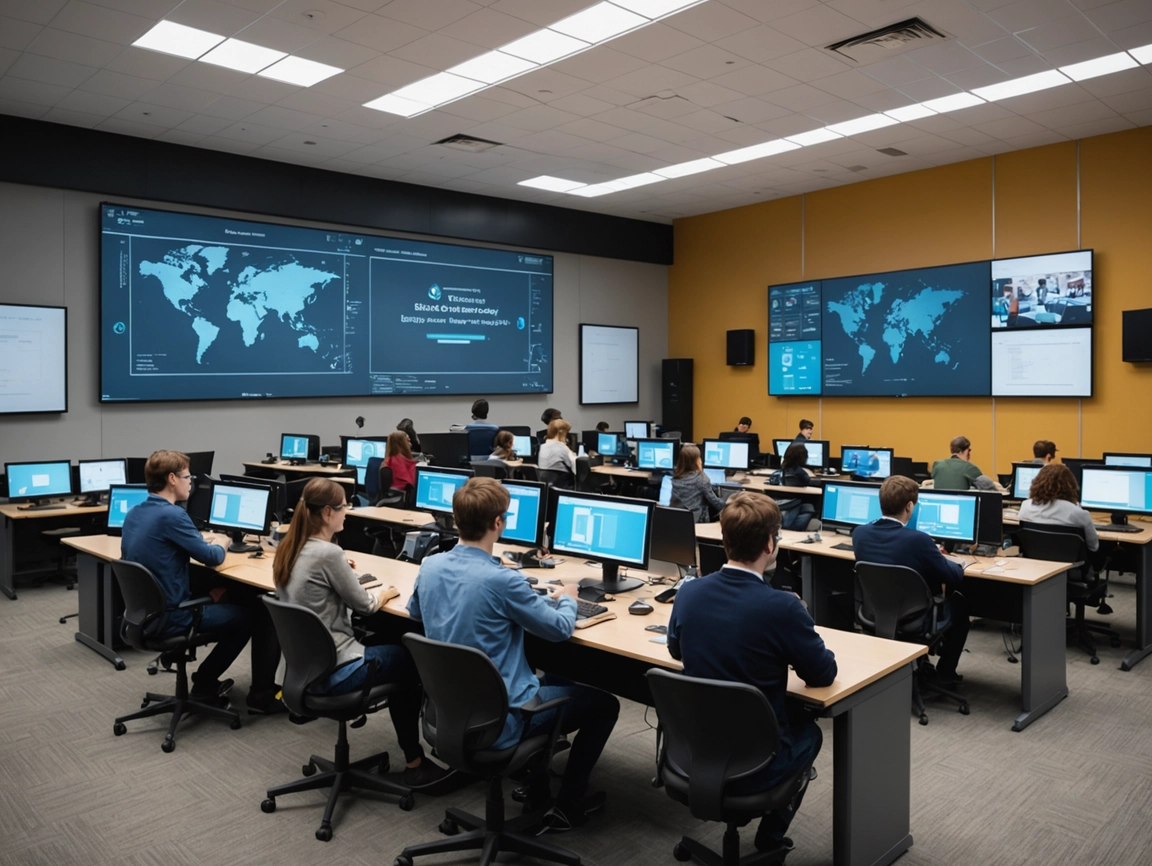Are you dreaming of pursuing a career in medicine and becoming a doctor? To gain admission to medical school in the United States, you will need to pass the Medical College Admission Exam (MCAT). This challenging exam is also required by some medical colleges in Canada, making it an essential step on your journey to becoming a doctor.
The MCAT is administered by the Association of American Medical Colleges and is offered approximately 14 times a year at Prometric Testing Centers across America. However, for aspiring medical professionals in the Philippines, preparing for the MCAT can present additional challenges.
Key Takeaways:
- Preparing for medical school entrance exams is essential for aspiring doctors.
- The MCAT is a challenging exam required for admission to medical school in the US.
- The MCAT has undergone recent changes, including an increase in exam duration and the removal of the writing sample section.
- There are no MCAT testing centers in the Philippines, so aspiring doctors must plan accordingly.
- Proper preparation, dedication, and commitment are crucial for success in the medical school application process.
Choosing a Medical School in the USA
When considering medical school in the USA, it is crucial to research and choose the right institution for your future career in medicine. With approximately 172 medical schools in the country offering Doctor of Medicine (MD) or Doctor of Osteopathic Medicine (DO) degrees, there are plenty of options to explore.
Top-ranked US universities like Harvard, Stanford, Johns Hopkins, and Yale are renowned for their exceptional medical research programs. These institutions often attract students from all over the world due to their strong reputations and prestigious faculty. However, it’s important to note that there are numerous other high-quality medical schools with excellent programs and high acceptance rates.
When making your decision, consider factors such as location, cost, curriculum, research opportunities, and campus culture. Each medical school has its own strengths and unique offerings, so it’s important to find the one that aligns with your personal and professional goals.
Before applying to medical schools in the USA, it is crucial to prepare for and take the Medical College Admission Test (MCAT). The MCAT is a standardized exam that measures your knowledge and aptitude in various scientific and medical fields. It is a required component of the medical school application process in the USA.
In addition to the MCAT, applicants must also utilize the American Medical College Application Service (AMCAS) as the main platform for submitting their applications. Through the AMCAS, you will need to complete a primary application and provide a personal statement that highlights your passion for medicine and your unique qualifications.
By thoroughly researching and carefully selecting a medical school, preparing for the MCAT, and submitting a strong application through the AMCAS, you can increase your chances of gaining admission to the medical school of your dreams.
Preparing for Medical School During College
To better prepare for medical school, it is crucial for students to plan their college course schedule with pre-med prerequisites in mind. This strategic approach ensures that the necessary foundation is built before embarking on a medical career. Working closely with a pre-med advisor can provide valuable guidance in navigating course requirements and effectively managing study time.
Developing strong study habits and identifying one’s personal learning style are key factors contributing to success in medical school. Each student’s approach to studying may vary, so it is important to discover the study techniques that work best for them. This may include creating a study schedule, breaking down complex topics into manageable chunks, and actively engaging in the learning process.
The Medical College Admission Test (MCAT) is a crucial component of the medical school application process. It is essential to take the MCAT seriously and begin preparing as early as possible. A comprehensive study plan, which may include utilizing study resources, taking practice exams, and seeking additional support when needed, can significantly improve MCAT scores.
In addition to academic preparation, gaining relevant experience is invaluable when strengthening a medical school application. This includes accumulating clinical hours, participating in research projects, and actively seeking out opportunities to enhance practical skills. Admissions committees value well-rounded applicants who showcase a commitment to the field of medicine.

Furthermore, engaging in extracurricular activities such as leadership roles, community service, and volunteering can make a candidate stand out from the competition. These experiences demonstrate a dedication to serving others and a willingness to make a positive impact.
It is important for aspiring medical students to plan ahead for the application process. This includes ensuring that all necessary requirements, such as personal statements, letters of recommendation, and interviews, are taken into consideration. Early preparation and organization contribute to a smoother application journey.
International Students and Medical School Admission
International students who aspire to attend medical school in the USA have additional considerations to keep in mind. In addition to meeting the academic requirements, they may need to demonstrate their English language proficiency through exams such as the International English Language Testing System (IELTS). The IELTS score is evaluated as part of the admissions process, assessing the ability to use English competently in an international medical setting.

It is important for international students to be aware of the MCAT testing locations, as there are no testing centers available in the Philippines. Therefore, it is necessary to plan accordingly and make arrangements to travel to a test center in a different country if required. International students should also strive to gather relevant experience and make connections within the medical field to enhance their application.
Tips for a Successful Medical School Application
A successful medical school application requires careful planning and preparation. To increase your chances of acceptance, here are some essential tips:
1. Choose Your College Classes Thoughtfully
When selecting your college classes, focus on taking pre-med prerequisites that are required for admission to medical school. Consult your academic advisor to ensure you are meeting all the necessary requirements. Building a strong foundation in the sciences and other relevant subjects will prepare you for the rigorous curriculum of medical school.
2. Seek Guidance from Advisors
Make use of the resources available to you by seeking guidance from your pre-med advisor. They can provide valuable insights and advice on course selection, extracurricular activities, and the medical school application process. Their expertise can help streamline your journey to medical school.
3. Develop Strong Study Habits
Establishing effective study habits early on is crucial. Medical school requires extensive studying, so it’s essential to develop efficient study techniques. Find methods that work best for you, such as active learning, creating study schedules, and seeking peer support.
4. Start MCAT Preparation Early
The Medical College Admission Test (MCAT) plays a significant role in the medical school application process. Start preparing for the MCAT as early as possible to maximize your scores. Utilize study materials, practice exams, and consider enrolling in a test preparation course if needed. Dedicate ample time to review all sections of the exam thoroughly.
5. Gain Clinical Experience
Medical schools value hands-on clinical experience. Volunteer at local hospitals, clinics, or healthcare organizations to gain exposure to patient care and the healthcare environment. This experience will not only enhance your application but also give you valuable insights into the medical field.
6. Participate in Extracurricular Activities
Engage in extracurricular activities that align with your interests and demonstrate your commitment to service and leadership. Join clubs, organizations, and community service initiatives that showcase your diverse skills and strengths. Admissions committees value well-rounded applicants who can contribute to the medical school community.
7. Secure Strong Letters of Recommendation
Letters of recommendation provide insights into your character, work ethic, and potential as a future physician. Cultivate relationships with professors, healthcare professionals, and mentors who can write meaningful letters on your behalf. Choose individuals who know you well and can speak to your academic abilities and personal qualities.
8. Write a Compelling Personal Statement
Your personal statement is an opportunity to showcase your unique background, experiences, and motivations for pursuing a career in medicine. Craft a compelling narrative that highlights your passion, resilience, and commitment to patient care. Use this space to demonstrate self-reflection and your ability to communicate effectively.
9. Plan Ahead and Submit Applications Early
Medical school applications typically have early deadlines. Create a timeline to ensure you complete all application requirements well in advance. Submitting applications early increases your chances of being reviewed promptly and can give you an advantage in the competitive admissions process.
10. Be Prepared for Interview
If you receive interview invitations, thoroughly prepare by researching potential interview questions and practicing your responses. Highlight your strengths, experiences, and aspirations. Lend a personal touch to your answers and showcase your genuine interest in becoming a physician.
Remember, the medical school application process is highly competitive, but with careful planning, dedication, and the use of these tips, you can set yourself up for success.

The Journey to Medical School
Once your applications have been submitted and you receive that long-awaited acceptance letter, it’s time to take a moment to celebrate. Being accepted into medical school is a remarkable achievement that signifies the beginning of your journey to becoming a doctor.
Take the time to acknowledge your hard work and dedication that got you to this point. Share your accomplishments with friends and family who have supported you throughout the application process. It’s a momentous occasion that should be cherished and celebrated.

After you’ve had time to revel in your success, it’s important to shift your focus towards preparing for your first year of medical school. The first year will bring new challenges and opportunities for personal and academic growth.
Make sure to familiarize yourself with the curriculum and expectations of the school you will be attending. Take the necessary steps to set yourself up for success, such as organizing your study materials, setting up a study schedule, and exploring resources that can aid in your learning.
Additionally, consider connecting with fellow students who will be starting medical school with you. Building a network of support can provide a valuable community to lean on throughout your medical education.
Conclusion
Preparing for medical school entrance exams like the MCAT in the Philippines requires careful planning, dedication, and a strong commitment to pursuing a career in medicine. By following the steps outlined in this article, students can increase their chances of success in the application process and maximize their opportunities for admission to top medical schools.
Starting with a comprehensive understanding of the MCAT and its four sections, students can develop effective study habits and begin their preparation early. Taking advantage of resources such as MCAT review materials, practice exams, and study groups can significantly improve MCAT scores and increase the likelihood of success.
Moreover, throughout their college years, students should focus on meeting pre-med course requirements and actively seeking opportunities to gain relevant experience in the medical field. This can include volunteering, clinical work, and research involvement, all of which contribute to a strong medical school application.
By approaching the application process strategically, from developing a compelling personal statement to securing strong letters of recommendation, students can impress admissions committees and demonstrate their passion for medicine. Ultimately, with proper preparation and a commitment to pursuing their goals, students in the Philippines can embark on a transformative journey toward a fulfilling career in medicine.


